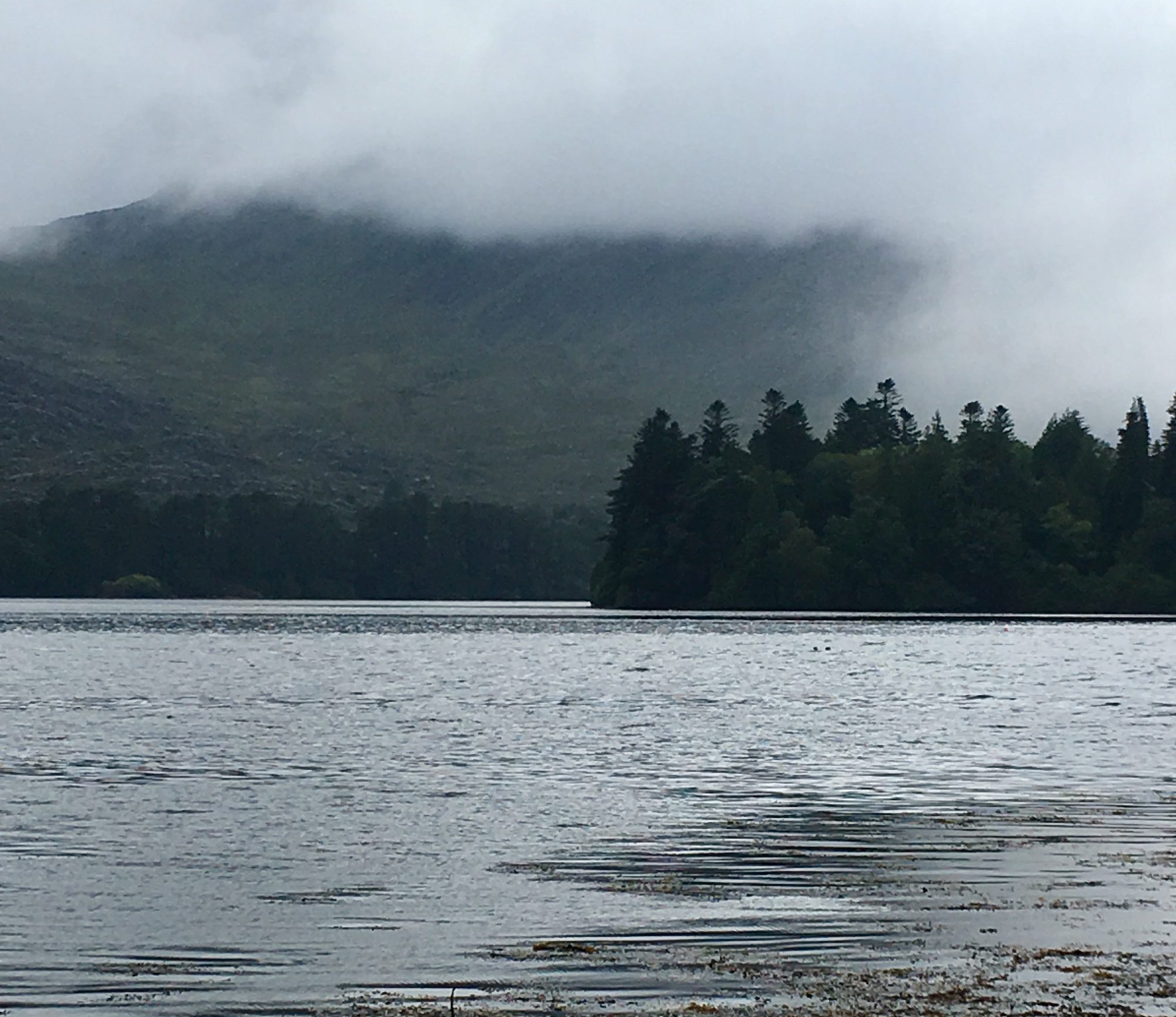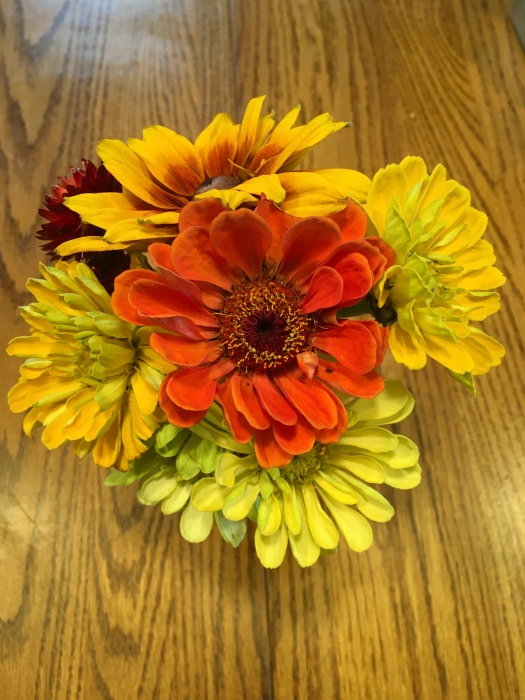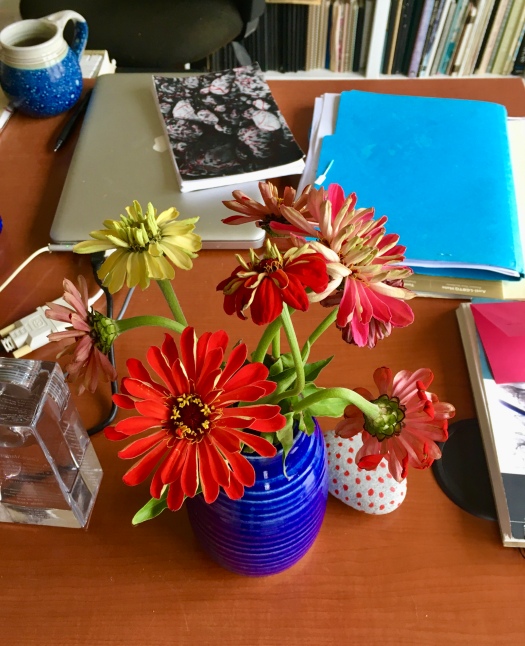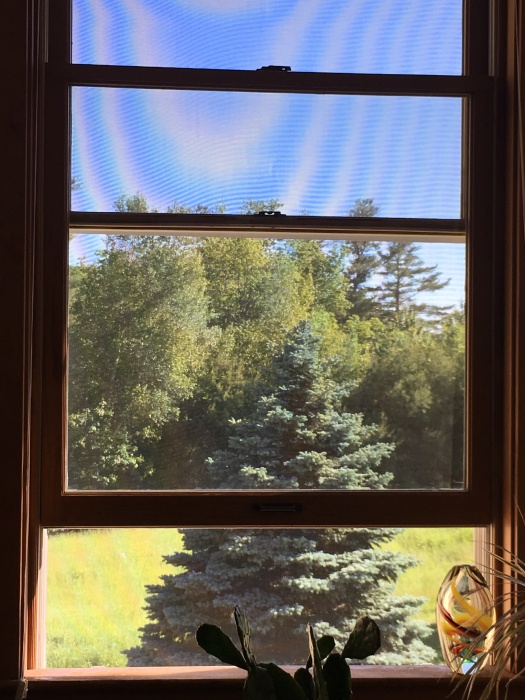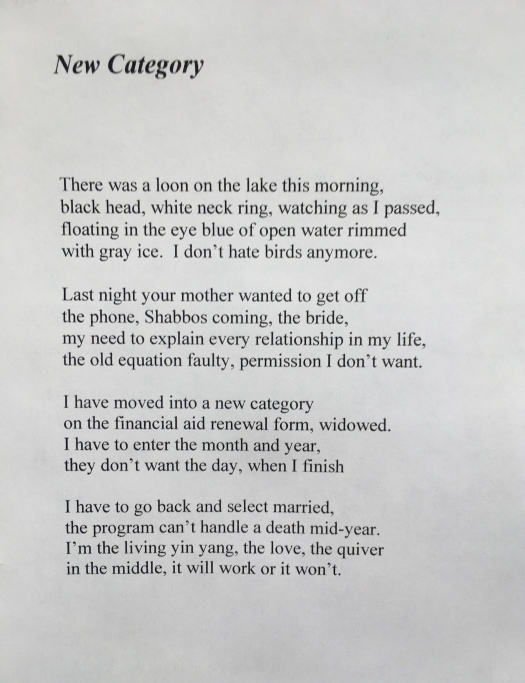I woke to a dusting of snow and the chatter of birds. A robin has made the old maple tree outside my study window his morning hang out, caroling notes that rise and fall — cheer-up, cheerily, cheer-up, cheerily.
Cheer-up is a needed but sometimes hard to heed message these days. But it does remind me of an old poem, written so long ago the room that is now my study wasn’t built yet and the body in the poem has been gone for 14 years. Still, the message is the same. Life moves in cycles. No matter where we are right now, we won’t always be here.
Happen In Darkness
There’s this sense of diving in
as blackbirds flock back to my feeders
and poppies break old ground
as my body comes in line
to reach for yours
with a single urgency that rises
as the sun does earlier
and earlier in what feels
like a long rush back
to the long hot hum
of a summer afternoon
already past the zenith
we’re traveling to now
aware all along
of what can and will
happen in darkness.
